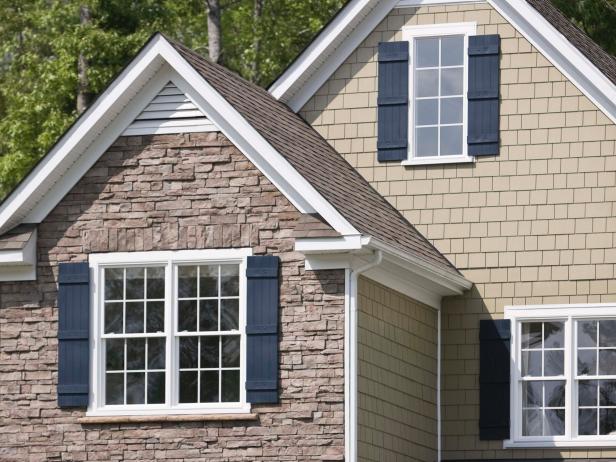Finding the Right Inspector

Thanks to lessons learned by Three Little Pigs Builders, we all know it's best to stay away from homes made of straw and sticks. While it may look like a dream home to you, only a competent home inspector can make sure you're not signing up for a nightmare.
John Hendricks, director of the National Institute of Building Inspectors, says to look for an inspector with a broad knowledge of all the systems and structures of a house, not just a specialized person such as a plumber or electrician.
"A home inspector is like a general practitioner. They're familiar with all systems of a house, all the entities and structural parts. That gives them a well-rounded picture of the house."
Home inspection expert Wally Conway says it's important to do a little research and ask questions. Home inspectors are not regulated in most states, so it's important to look for credentials such as certification by the American Society of Home Inspectors (ASHI). And if your state does regulate inspections, check with the state agency to verify the inspector's license and check their record for complaints.
Another important aspect is the experience of your inspector.
"Be sure to ask how long the inspector has been in the inspection business. Longevity gives some comfort that the company will be with you in the future as new needs and issues arise," Conway says. He also says don't be shy about asking how many house inspections the candidate has under his or her tool belt.
"An inspector may have been in business for five years, but inspected less than a dozen homes. Your home buying decision is far too important to be a practice place for a part-time inspector."
Stephen Gladstone, president of Stonehollow Inc. and a former national president of ASHI, says members are prohibited from performing repairs or contracting work on the homes they inspect. Don Norman, St. Louis HouseMaster franchisee and also a former president of ASHI, says members must also have completed 250 inspections, pass inspection and ethics exams and complete at least 20 hours a year of continuing education.
Gladstone says to make sure your inspector is objective and independent and does not have any affiliation with the real estate agency selling the home. Joe Corsetto, president of ShelterWorks Inc. in Dover, N.J., says to look for an independent, third party when searching for an inspector.
"A strong referral from someone outside the home purchase process is the best referral source to assure an independent evaluation of a building."
Norman also advises to choose an inspector who carries errors and omissions insurance. "This insurance protects homebuyers and inspectors as well."
Though it may seem a bit like putting the cart before the horse, Gladstone says you might want to start shopping for an inspector before you pick up the real estate classifieds. If you're already in the process of buying a house you may feel pressured to hire the first inspector you find.
"Take the time to speak with an inspector or two and feel good about their skills, capabilities and bedside manner," Gladstone says. He suggests asking friends who have bought homes if they can refer you to a qualified inspector, or look up a list of local inspectors on the ASHI website.
But most buyers don't start looking for an inspector until after they've picked a property, according to Norman.
"Typically, a buyer will hire a home inspector immediately after signing a contract for purchase of a home. Most real estate contracts have a time limit (ranging from three to 10 days) on how quickly the buyer must have their inspections performed," Norman says. "Some buyers have hired an inspector when they have found a house they love but before signing a contract. We don't recommend that because in a hot real estate market, the buyer runs the risk of losing the house to another buyer who gets a contract in first."
David Swartz of Advantage Inspection Service in Phoenix also says to start looking for an inspector early. Once you find a home the clock is ticking and you don't want to waste time researching an inspector at that point.
"In most real estate contracts you have a limited amount of time to perform the inspection and respond to the seller with any requests. So, don't waste time by waiting until your contract is signed to conduct a search."
Swartz also cautions against having your handyman brother-in-law perform an inspection for you. He says using a non-professional is about like having an amateur perform heart surgery.
"The consequences can be immense in terms of the financial and emotional damage caused when major defects are not discovered. Home inspection is a full-time profession that requires extensive education and experience to become proficient." An inspector should also be familiar with the particular type of house you're considering. Once again, don't be afraid to ask questions.
"All homes have some systems and features in common, but homes of different ages, designs and materials each have their own special risks and offer special signs, symptoms and clues to hidden damage," Conway says. "Only someone who has walked the walk and crawled the crawl numerous times in similar homes can sleuth out those important items."
Gladstone says an inspection should cover the home's heating and cooling systems, electrical, plumbing, interiors, exteriors, garages, baths, roofing, kitchens, drainage, insects, insulation, ventilation and more. The task should take two to four hours or more, depending on the complexity of the job. Costs range from about $300 to $800 for typical homes, but can go much higher depending on the age and type of structure.
A thorough inspection can find problems related to water entry, roof leaks, insect infestation, unsafe wiring, failed septic systems, poor plumbing, wet basements, mold and mildew and safety hazards.
According to Swartz, an inspector should also check the structural soundness of all parts of a home including exterior walls, parapets, soffits, fascia, trim, chimney, foundation, slabs, basement and crawl space.
The inspector should climb into the attic and on the roof to assess the insulation, ventilation, framing, roof surface, flashing, penetrations, drainage, overhangs, gutters and downspouts. The kitchen inspection includes cabinets, counters, sinks, faucets, garbage disposal and other built-in appliances.
And don't step out for lunch while the inspector's on the job. "Make sure you plan on attending, watching, asking questions and learning," Gladstone says.
Once the inspection is done, you need a report right away. Timing can be critical if you're negotiating. Conway advises working with an inspector who can deliver a completed report in plenty of time for you to review.
"Most companies can deliver the report to you right at the home as the inspection is completed. This is best for you, giving you the extra benefit of an onsite review of the report with the inspector."
A report should contain photographs and descriptions of any damage or defects found during the inspection, as well as details on the location of damage.
"You will want pictures of these areas to make your understanding of the scope and location of the damage clear. It also makes it simpler to get repairs estimated when a photograph is available," Conway says.
Request an electronic copy of the report as well. This makes it easier to share by e-mailing it to friends and family.












































